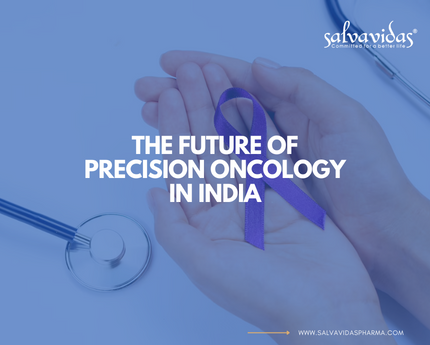
The Future of Precision Oncology in India
Introduction:
Precision oncology is an emerging field of cancer care that uses genomic testing to identify genetic mutations in cancer cells and tailor treatment plans based on an individual patient’s genetic profile. In India, precision oncology is gaining traction as a promising approach to cancer care, with an increasing number of cancer centres and hospitals adopting genomic testing and precision medicine strategies.
In this article, we will delve into the future of precision oncology in India, discussing the latest advancements, challenges, and prospects in this rapidly evolving field of cancer care.
Advancements in Precision Oncology in India:
- Genomic Testing: Genomic testing has revolutionised cancer care in India, enabling clinicians to identify specific genetic mutations that drive cancer growth, and design targeted therapies based on the individual patient’s genetic profile.
- Liquid Biopsy: Liquid biopsy is a non-invasive diagnostic test that uses blood samples to detect cancer cells and monitor treatment response. This approach is gaining popularity in India as an alternative to traditional tissue biopsies, which can be invasive and time-consuming.
- Immunotherapy: Immunotherapy is a promising approach to cancer treatment that harnesses the patient’s immune system to fight cancer cells. In India, several cancer centres are now offering immunotherapy as a treatment option for various types of cancer.
- Artificial Intelligence: AI-powered tools are being used in precision oncology to analyse vast amounts of genomic and clinical data, identify patterns and biomarkers, and design personalised treatment plans for patients.
Challenges in Precision Oncology in India:
- Cost: Precision oncology is a costly approach to cancer care, as it involves extensive genomic testing and personalised treatment plans. In India, where healthcare costs are a major concern for many patients, access to precision oncology remains a challenge.
- Infrastructure: Precision oncology requires specialised infrastructure and expertise, including advanced genomic testing facilities, trained personnel, and IT infrastructure to manage and analyse vast amounts of data. Building and maintaining such infrastructure can be a challenge for many healthcare providers in India.
- Lack of Awareness: Despite the growing popularity of precision oncology in India, many patients and healthcare providers are still not aware of its benefits and applications. Raising awareness and educating patients and providers about precision oncology can help expand its reach and impact in India.
FAQs:
Q: What is precision oncology?
A: Precision oncology is an approach to cancer care that uses genomic testing to identify specific genetic mutations in cancer cells and design personalised treatment plans based on an individual patient’s genetic profile.
Q: How is precision oncology different from traditional cancer treatment?
A: Traditional cancer treatment involves a one-size-fits-all approach to cancer care, where all patients with the same type of cancer receive the same treatment. Precision oncology, on the other hand, tailors treatment plans based on an individual patient’s genetic profile, ensuring that each patient receives the most effective and personalised treatment.
Q: Is precision oncology available in India?
A: Yes, precision oncology is available in India, with several cancer centres and hospitals offering genomic testing and precision medicine strategies for cancer care.
Conclusion:
The future of precision oncology in India looks promising, with advancements in genomic testing, liquid biopsy, immunotherapy, and AI-powered tools enabling more personalised and effective cancer care. However, challenges such as cost, infrastructure, and awareness must be addressed to expand the reach and impact of precision oncology in India. With continued investment and innovation, precision oncology has the potential to transform cancer care in India and improve outcomes for millions of patients.




0